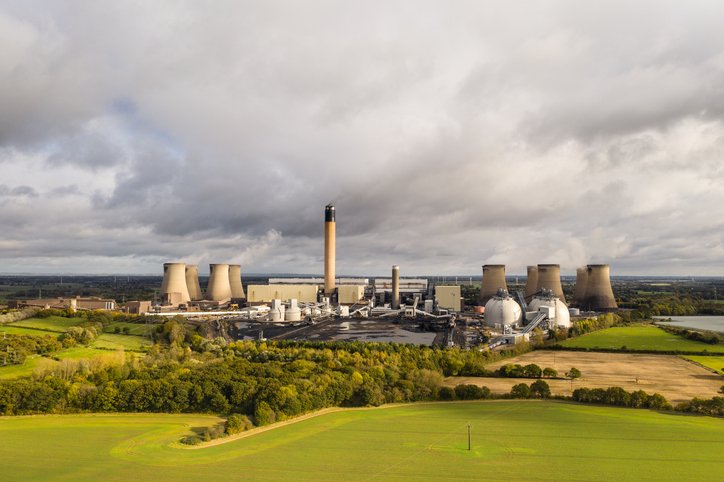Mainstream politics and captured media – print, broadcast and social – have obscured the imperative of making this transition sooner rather than later, so it’s still all a bit of a shock for most. But that transition is now underway – trust me!
Time to double down
I am often reminded of one of those old cartoon tropes where some hapless person is boarding a boat which has already started moving away from the dock, leaving him or her with one foot on board and one still on shore.
Just think of those dullards on the Church of England Investment Committee trying to justify their continued investment in Exxon Mobil! And that’s how it’s going to be for quite a while.
Hence the emergence of the Net Zero Scrutiny Group here in the UK, made up mostly of those Conservative MPs who forced us all into the hardest of hard Brexits.
Cloaked in a blatantly dishonest ‘concern for hard-working people facing massive hikes in energy prices’, they’re blaming the current crisis on the government’s commitment to a net-zero economy and the various green measures energy consumers have to pay for. Advocating, meanwhile, for massive new investment in fracking and nuclear.
It is, of course, total tosh. Today’s crisis is one of a dysfunctional global gas market, and by far the best way of dealing with this is by doubling down, now, on energy efficiency and renewables – to address fuel poverty, energy security and the climate emergency all at the same time.
But that tosh has to be called out – not least by government ministers. It was painful listening to Alok Sharma, on the BBC’s World at One back in February, going to great lengths to avoid calling it out.
Sharma is still president of the whole COP process, and the man who (rather movingly) burst into tears when China and India bullied the Glasgow conference into weakening its commitment to phase out coal.
The Committee on Climate Change did a much better job than Alok Sharma, dismissing the ideas of the Net Zero Scrutiny Group and calling for a ‘presumption against all new fossil fuel developments’ – including new investments in the North Sea.
And Sir John Armitt, chair of the National Infrastructure Commission, was evenclearer, urging ‘a year of acceleration rather than prevarication’ while emphasising the importance of being ‘open and honest with the general public.’ I couldn’t agree more, on both counts.
The best way to accelerate the transition is unequivocally to call out the lies and delaying tactics of those who want to lock us into the dying era of fossil fuels. At every available opportunity. With friends, work colleagues, family and people you happen to meet at the bus stop. No messing around! Just hold firm!
 Play Video about This Rock Might Just Save The World
Play Video about This Rock Might Just Save The World Play Video about Play 2 hours of rock
Play Video about Play 2 hours of rock Play Video about Play 2 hours of brook
Play Video about Play 2 hours of brook Play Video about Play 2 hours of sheep
Play Video about Play 2 hours of sheep











































